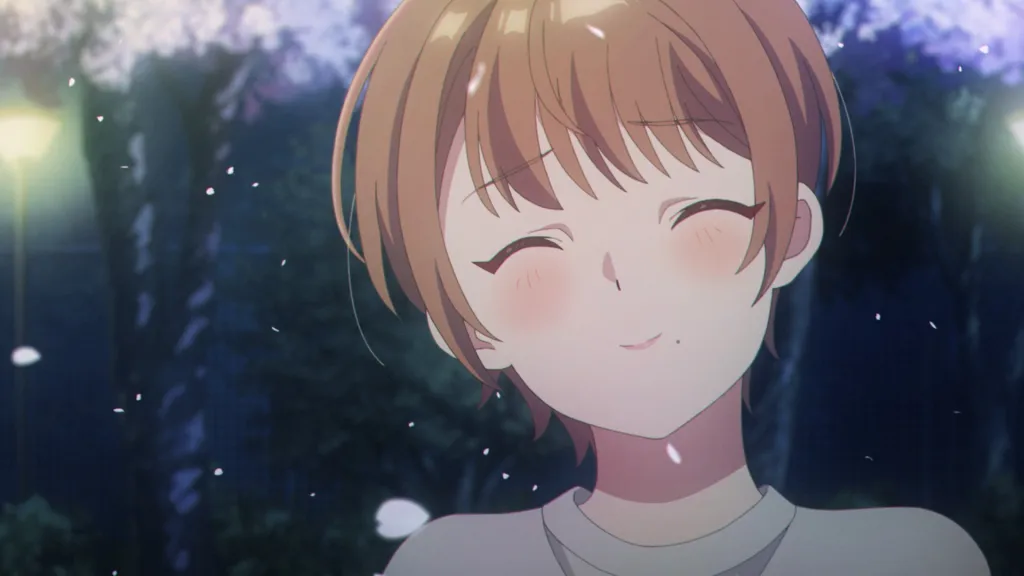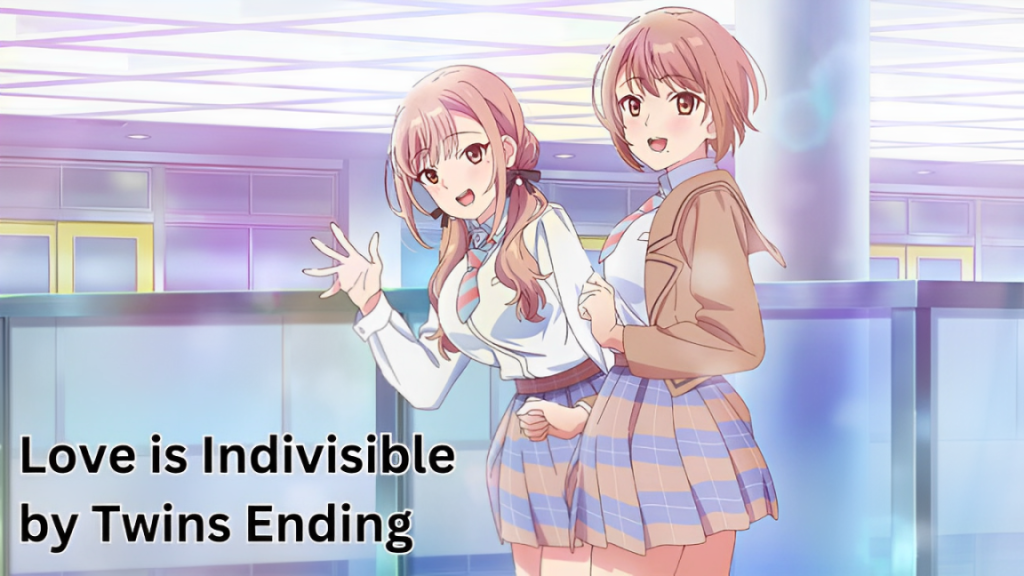Love is Indivisible by Twins Ending: Exploring the Complex Conclusion
Love is Indivisible by Twins (Koi wa Futago de Warikirenai) is a novel that follows a complicated love triangle between Jun Shirasaki and the fraternal twins Rumi and Naori Jinguji. The Love is Indivisible by Twins Ending delivers an emotional and bittersweet conclusion, as the novel dives into themes of guilt, jealousy, and unresolved love between the three characters. This post will spoil the ending and explore the intricate relationships that lead to its dramatic finale.
Anime Ending
In the anime adaptation of Love is Indivisible by Twins, the series concludes with Episode 12, titled “My Feelings Right Now.” In this episode, the complex relationships between Jun Shirosaki and the Jinguji twins, Rumi and Naori, reach a pivotal moment. During a family camping trip, the twins openly express their feelings for Jun, leading to a heartfelt confrontation. Jun, caught between his affection for both sisters, decides not to choose between them, opting instead to maintain the status quo. This decision leaves the love triangle unresolved, providing a bittersweet and open-ended conclusion to the anime.(AniList).
For those interested in the complete resolution of the story, the light novel delves deeper into the characters’ relationships and offers a more definitive ending.
Quick Answer: The light Novel Ending
By the end of Love is Indivisible by Twins, Jun remains torn between Rumi and Naori, and while his feelings for both are clear, he doesn’t choose one definitively. The story leaves much of the emotional tension unresolved, reflecting the complexities of love and relationships. Instead of giving a clear romantic resolution, the ending emphasizes the difficulty of making decisions in matters of the heart, leaving readers with an open, thought-provoking conclusion.
Plot Overview
The story begins with Jun forming a close bond with the twins when they move in next door to him during their childhood. While both girls develop feelings for Jun, their personalities differ greatly. Rumi is more outgoing, athletic, and brimming with confidence, while Naori is quieter, reserved, and academically inclined. As they grow older, Rumi impulsively asks Jun to be her boyfriend, and he agrees despite the complexity of the situation. The guilt she feels from hiding her relationship from Naori becomes overwhelming, and Rumi ultimately breaks up with Jun(Wikipedia).
Though heartbroken, Jun later begins a relationship with Naori at Rumi’s insistence. However, the emotional fallout from the break-up looms over their new relationship. Jun’s feelings for Rumi never truly fade, and despite his budding romance with Naori, the tension between the three of them intensifies. Naori is aware of Jun’s lingering emotions for her sister, which complicates their relationship even further. The novel does a great job of capturing these moments of self-doubt, inner conflict, and emotional turmoil(Epicstream).
The Ending Explained
The novel’s final chapters offer a tense and heart-wrenching conclusion. As Jun and Naori try to continue their relationship, Jun’s unresolved feelings for Rumi become impossible to ignore. He still harbors strong feelings for Rumi, and even though he is dating Naori, his love for Rumi clouds his judgment and makes it difficult for him to fully commit to Naori.
Rumi, on the other hand, feels immense guilt for her actions, pushing Jun away while simultaneously yearning to be with him again. Her attempts to “correct” her mistake by encouraging Jun to date Naori only complicate matters. The story reaches its emotional peak when both twins confront their true feelings, with Rumi confessing her regret over breaking up with Jun and admitting she still loves him.
In the final moments of the novel, Jun is left torn between the two sisters, unable to fully decide between his love for Rumi and his commitment to Naori. While he remains with Naori by the end, it’s clear that his heart has not let go of Rumi, leaving readers with an ambiguous, bittersweet conclusion. The novel leaves room for interpretation, with no clear resolution to the emotional entanglement of the three main characters(Wikipedia)(Epicstream).

Themes and Emotional Complexity
One of the main themes of Love is Indivisible by Twins is the concept of self-sacrifice in love. Rumi’s decision to break up with Jun for Naori’s sake and Jun’s struggle to balance his feelings for both twins highlight the emotional toll of putting others’ happiness before one’s own. The novel does an excellent job of exploring the intricacies of human emotions and how guilt, love, and jealousy can drive people to make decisions that have lasting consequences.
Another key theme is unresolved love. Jun’s inability to move past his feelings for Rumi despite being in a relationship with Naori reflects the often messy nature of real-life relationships. This realism, combined with the novel’s complex character dynamics, keeps readers invested in the story, even as it spirals toward its unresolved and bittersweet ending.
Conclusion
In the end, Love is Indivisible by Twins offers an emotional, thought-provoking narrative that leaves readers questioning what true love really means. Jun’s torn feelings between Rumi and Naori make for a compelling, if not tragic, story that underscores the pain of unresolved emotions and the difficulty of making decisions in matters of the heart.
For more emotional and relationship-driven stories, be sure to check out my comprehensive list of romance anime recommendations. Additionally, if you’re curious about how the Love is Indivisible by Twins story differs across mediums, don’t miss my post on Love is Indivisible by Twins: Anime vs Light Novel for an in-depth comparison.


